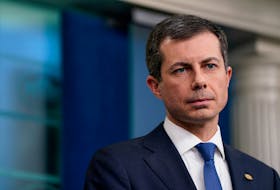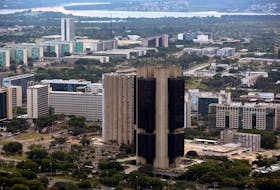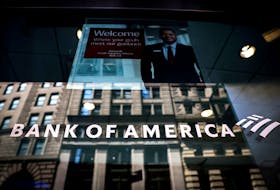WASHINGTON (Reuters) - The International Monetary Fund on Thursday approved Peru's request for a two-year $11 billion flexible credit line to be used as precautionary financing as the copper-rich country responds to the coronavirus pandemic.
IMF Managing Director Kristalina Georgieva said in a statement that Peru had achieved impressive macroeconomic outcomes given its "very strong policy and institutional frameworks," but remained vulnerable to external risks such as a prolonged coronavirus outbreak.
The world's second-largest copper producer has reported 135,905 infections of the new coronavirus and 3,983 deaths.
The IMF's Flexible Credit Line was established in 2009 to prevent crises, giving countries with very strong track records the flexibility to draw funds at any time during the period of the arrangement. Disbursements are not phased nor conditioned on compliance with policy targets as in traditional IMF programs.
Georgieva said Peru's low inflation and prudent fiscal management had been instrumental in lowering government debt and building fiscal buffers, while effective financial sector supervision had contributed to preserving financial stability.
She said Peruvian authorities had responded to the pandemic with containment measures and a large policy package to limit the socio-economic fallout, but a prolonged outbreak could disrupt trade and financial flows.
The new IMF arrangement would serve as temporary insurance and should buttress confidence at a time of heightened global uncertainties, the IMF leader said.
She added that Peru intended the credit arrangement to be precautionary, and would reduce access and consider exiting the arrangement when external risks to the economy had subsided.
(Reporting by Andrea Shalal; Editing by Sandra Maler and Grant McCool)








